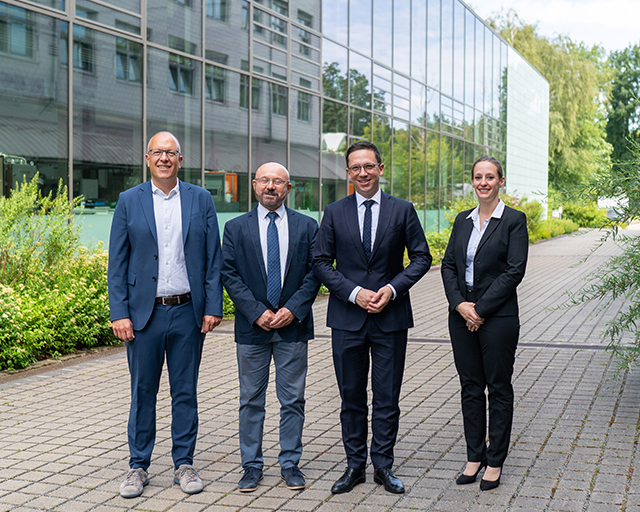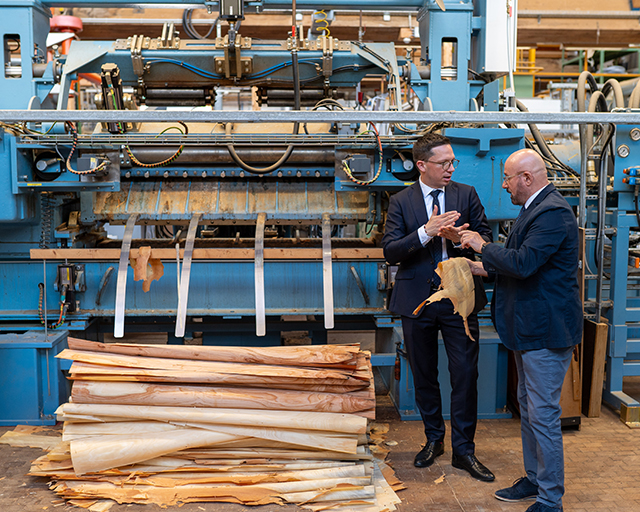Background information
On the Fraunhofer WKI:
Sustainability has been the central theme at the Fraunhofer WKI since its foundation in 1946. Founder and eponym Dr. Wilhelm Klauditz is considered a pioneer of the modern wood-based materials industry. Today, the Fraunhofer WKI utilizes the entire spectrum of renewable raw resources in order to develop sustainable materials, components and chemical products. The institute, with locations in Braunschweig, Hanover and Wolfsburg, specializes in process engineering, molding and component production with biomaterials, bio-based binders and coatings, functionalization, fire protection, material and product testing, recycling processes and the utilization of renewable raw materials in buildings and vehicles. Furthermore, the Fraunhofer WKI is one of the leading research institutions in the field of indoor air quality. Virtually all the processes and products resulting from the institute’s research activities are used in industry.
Through its research and development activities, the Fraunhofer WKI provides an important contribution towards the development of a bio-based circular economy (circular bioeconomy).
On the Fraunhofer IST:
The Fraunhofer Institute for Surface Engineering and Thin Films IST exploits the potential for sustainable products and the associated competitive, scalable production systems. The research covers plant engineering, entire process chains of process engineering, process technology and manufacturing technology and even the examination of entire factories. Based on sustainability requirements, the entire product life cycle is taken into account - from the material, through the process to create the component and product, and on to recycling.
Building on the technology and competence fields, the specialist departments of the Fraunhofer IST create solutions, in particular for the sectors of mechanical and plant engineering, tools, vehicle construction, aerospace, energy, optics, medical and pharmaceutical process engineering, agriculture and the food industry as well as environmental technology. These encompass solutions for battery production, the establishment of hydrogen technologies and the manufacture of tribological, sensory and precision-optical systems as well as methods and technologies in the field of analytics for simulation and digital services and the systematic consideration of sustainability requirements and a circular economy by means of Life Cycle Engineering.


